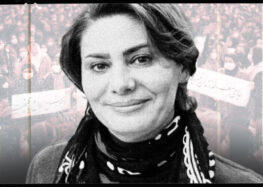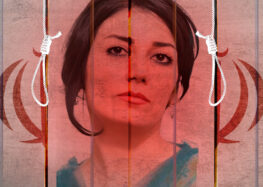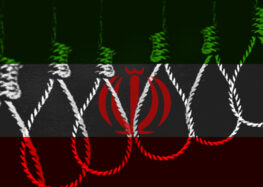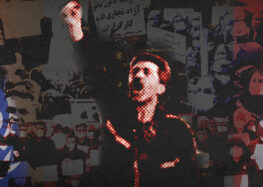Imprisoned Nobel Peace Laureate Narges Mohammadi Denied Urgent Medical Treatment
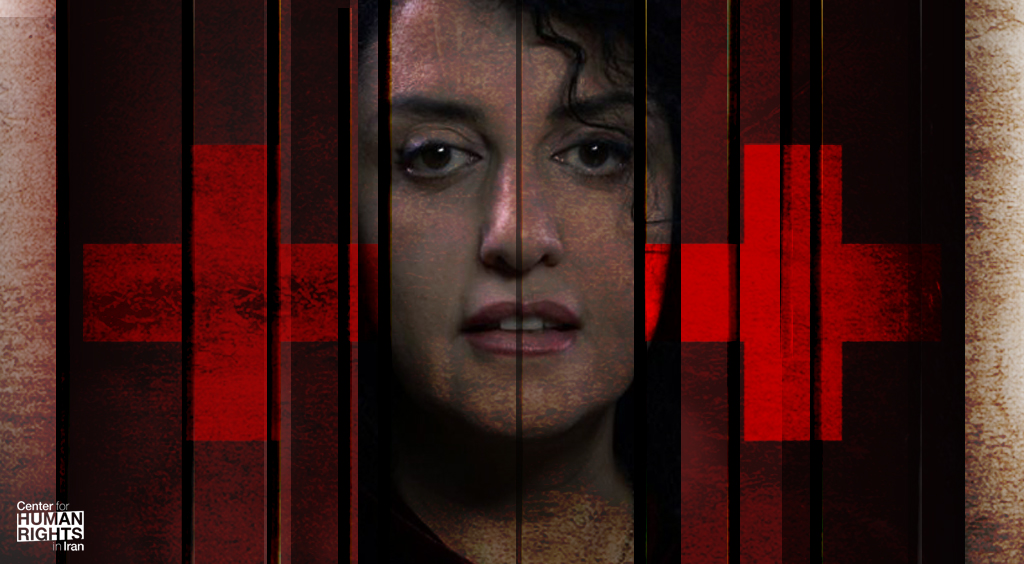 Human Rights Activist’s Serious Cardiac, Gastrointestinal and Spinal Issues Left Untreated
Human Rights Activist’s Serious Cardiac, Gastrointestinal and Spinal Issues Left Untreated
International Community Must Demand Release and Medical Care for Iran’s Political Prisoners
August 2, 2024 – The Islamic Republic of Iran is deliberately withholding critical medical care from renowned Nobel Peace laureate Narges Mohammadi, who is unjustly imprisoned in Tehran’s infamous Evin Prison for her courageous and peaceful human rights advocacy.
Mohammadi is suffering from serious cardiac issues, long-standing gastrointestinal disorders, and most recently, painful spinal injuries. Iran’s prison authorities have not allowed her to receive full or proper treatment for any of these medical issues.
“Iranian authorities are not only unlawfully depriving a Nobel Peace laureate of her freedom but also jeopardizing her life by denying her essential medical care. Narges Mohammadi’s deteriorating condition underscores the Islamic Republic’s brutal and lawless treatment of human rights defenders,” said Hadi Ghaemi, executive director of the Center for Human Rights in Iran (CHRI).
“Despite the Islamic Republic’s relentless efforts to silence her and the severe conditions of her imprisonment, she has continued her courageous fight for human rights and freedom in Iran from inside prison,” said Ghaemi.
Forced to spend over a decade in and out of prison on bogus political charges, Mohammadi has faced repeated hospitalizations and has been denied access to medical care numerous times. Since May 2021, she has been incarcerated in Tehran’s Evin Prison, where her health has steadily deteriorated.
CHRI calls on the international community to demand that the Iranian authorities:
- Provide immediate and full medical care to Narges Mohammadi and all prisoners, especially political prisoners, who are routinely denied medical care, as is required under both Iranian and international law.
- Release political prisoners, including Narges Mohammadi and all others who have been imprisoned for the peaceful expression of their views or beliefs.
Authorities Denied Multiple Medical Requests for Mohammadi in Past Eight Months
CHRI has received information from Mohammadi’s family detailing her current health crisis and the authorities’ refusal to provide the medical treatment she urgently needs.
“In February 2022, after enduring 64 days in solitary confinement and one month in Qarchak prison, Narges was transferred to the hospital with excruciating pain that was cutting off her breath. An angiography was performed. The main artery of her heart had 75% blockage. Therefore, a stent was placed in that artery,” a member of Mohammadi’s family told CHRI on August 1, 2024.
Only three days after her emergency heart surgery, which was later found to be the result of a series of heart attacks, the authorities transferred Mohammadi back to prison against medical advice on February 19, 2022.
The family member told CHRI that in October 2023, two other blocked arteries underwent angiography, adding: “The doctor advised that it would be best not to place a stent at that time. If the blockage becomes more than 50%, we will have to do the operation.”
“As prescribed by the cardiologist, she was supposed to be sent to the hospital for angiography in May 2024, but the authorities did not agree. Finally, on July 6, after a month and a half delay, she was sent to the hospital. During the examination, the doctors noticed masses in her chest. They decided to first perform a biopsy to determine if immediate surgery was required. Therefore, the angiography was delayed,” the family member said.
“The issue she has is that the stent placed in the main artery has a short base. Unfortunately, the artery has become constricted behind the stent and needs to be opened as soon as possible. But after the biopsy was performed, she was returned to prison,” said the family member.
“In addition, about eight months ago, Narges was sent to the hospital due to back pain that had paralyzed her for four days. MRI and CT scans were taken. The specialist doctor wrote a letter to the prison saying that Narges has lumbar disc injuries to her L4 and L5 vertebrae. The doctor requested ten emergency physiotherapy sessions in a letter delivered to the prison,” the family member told CHRI.
“But since then, even though the doctor has twice sent letters through a lawyer about Narges’s situation and requested her transfer for ten physical therapy sessions, the prison authorities have refused to do so,” the family member added.
Mohammadi was previously hospitalized in November 2023 after going on a hunger strike to protest prison officials’ decision to deny her, along with other ailing inmates, access to adequate medical care because they refused to wear the compulsory headscarf.
“She is willing to risk her life by not wearing the ‘forced hijab,’ even for medical treatment,” her family wrote on social media in November 2023.
Decades of Advocacy from Inside and Outside Prison
Arrested 13 times, Mohammadi has been sentenced to a total of 36 years and three months in prison and 154 lashes in multiple prosecutions on bogus charges that include “spreading propaganda against the state,” according to her family.
Despite wrongfully imprisoning her, Iranian authorities have failed at silencing Mohammadi’s voice. In her powerful letters from prison, she continues her advocacy for human rights and women’s rights in Iran.
While in Evin prison, Mohammadi voiced her support for the “Woman, Life, Freedom” protests that erupted across Iran following the killing in state custody of 22-year-old Mahsa Jina Amini in September 2022 for having “improper hijab.” Since then, Mohammadi has vowed never to wear the headscarf, which is mandated by the Islamic Republic for all women.
In December 2022, in a letter from Evin Prison, she detailed how women detained in the “Woman, Life, Freedom” anti-government protests were being sexually and physically abused.
In December 2023, Mohammadi became the second Iranian woman to receive the Nobel Peace Prize; however, she remained in prison while her two children delivered her Nobel acceptance speech.
“I write this message from behind the high, cold walls of a prison. The Iranian people, with perseverance, will overcome repression and authoritarianism,” she wrote from Evin prison.
Mohammadi has spent the past two decades advocating against the Islamic Republic’s human rights violations and oppression of women. She was first arrested in 2011. In just the past three years alone, she has undergone six trials in revolutionary and criminal courts, resulting in a total sentence of 13 years and three months in prison, 154 lashes, exile, and four months of street cleaning, according to her lawyer, Moustafa Nili.
This year alone, her sentence has been extended multiple times. In January 2024, she was handed an additional 15 months in prison for “spreading propaganda” against the Islamic Republic regime, her family said.
Most recently, in June 2024, Branch 29 of the Tehran Revolutionary Court sentenced her to one additional year in prison for “propaganda activities against the state.”
According to her lawyer Nili, the court cited Mohammadi’s call to boycott Iran’s parliamentary elections, her letters to lawmakers in Sweden and Norway, her support of the “Woman, Life, Freedom” protests, and her criticism of Iranian authorities’ torture and sexual assault of Dina Ghalibaf, an Iranian journalist and student of political science.
Mohammadi has repeatedly refused to attend her trials in protest over the lack of due process. She was not present at the latest trial in June, and the verdict was issued in her absence despite her demands for a public trial.
“You are obligated to hold a public trial with the presence of independent journalists, women’s rights activists, human rights advocates, and my lawyers. I wish to be prosecuted in court with the testimony of witnesses of the sexual assaults committed by the Islamic Republic regime against women,” Mohammadi stated in a message sent from prison published on her Instagram page prior to her trial in June.
“Narges Mohammadi’s fight has not stopped despite the immense personal cost of years of wrongful imprisonment, separation from her two children, and ongoing punishment for continuing her work from behind bars,” said Ghaemi.
“The international community must unite in demanding the immediate release of this Nobel Peace Laureate and all of Iran’s other brave human rights defenders, sending a clear message to the authorities in Iran that the world will not accept these gross injustices,” he added.
This report was made possible from donations by readers like you. Help us continue our mission by making a tax-deductible donation.


